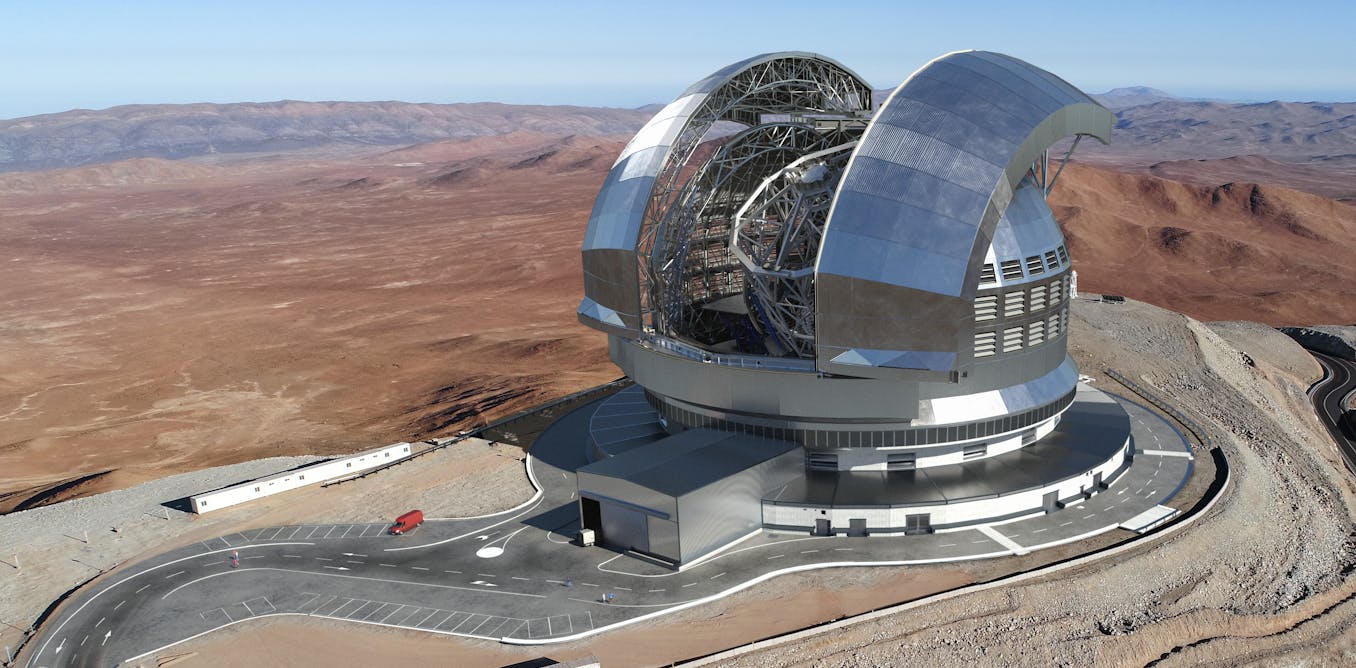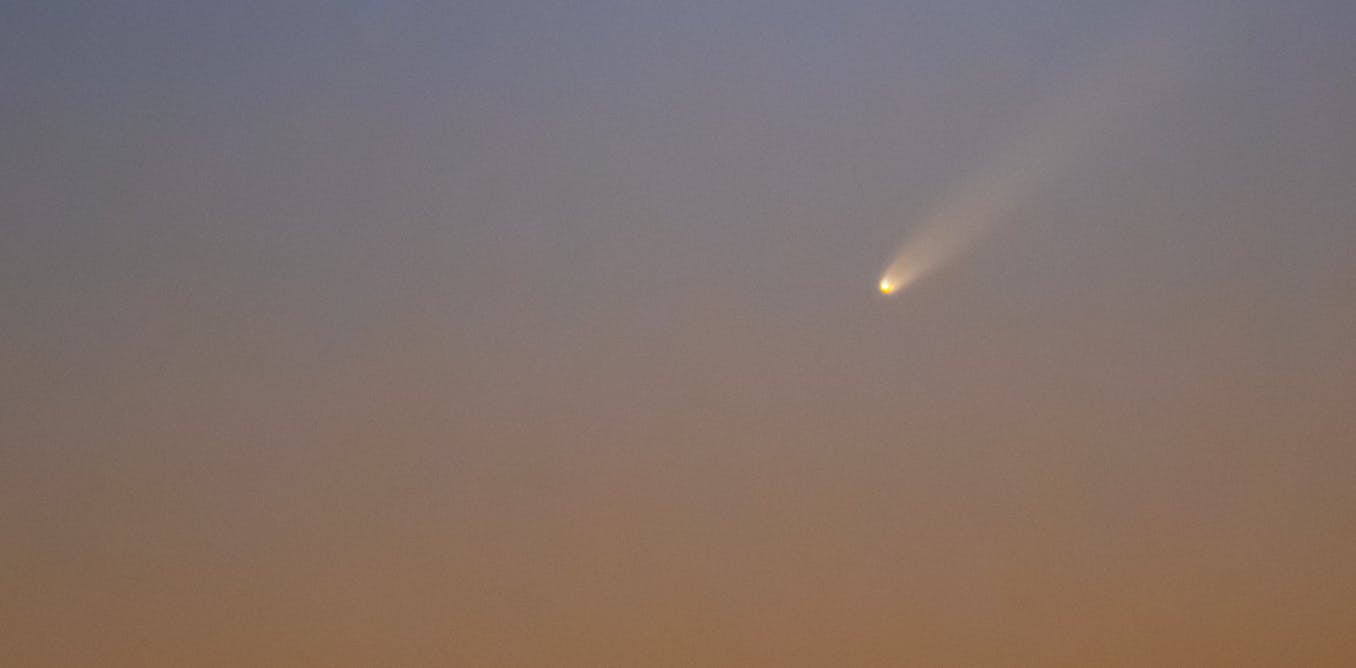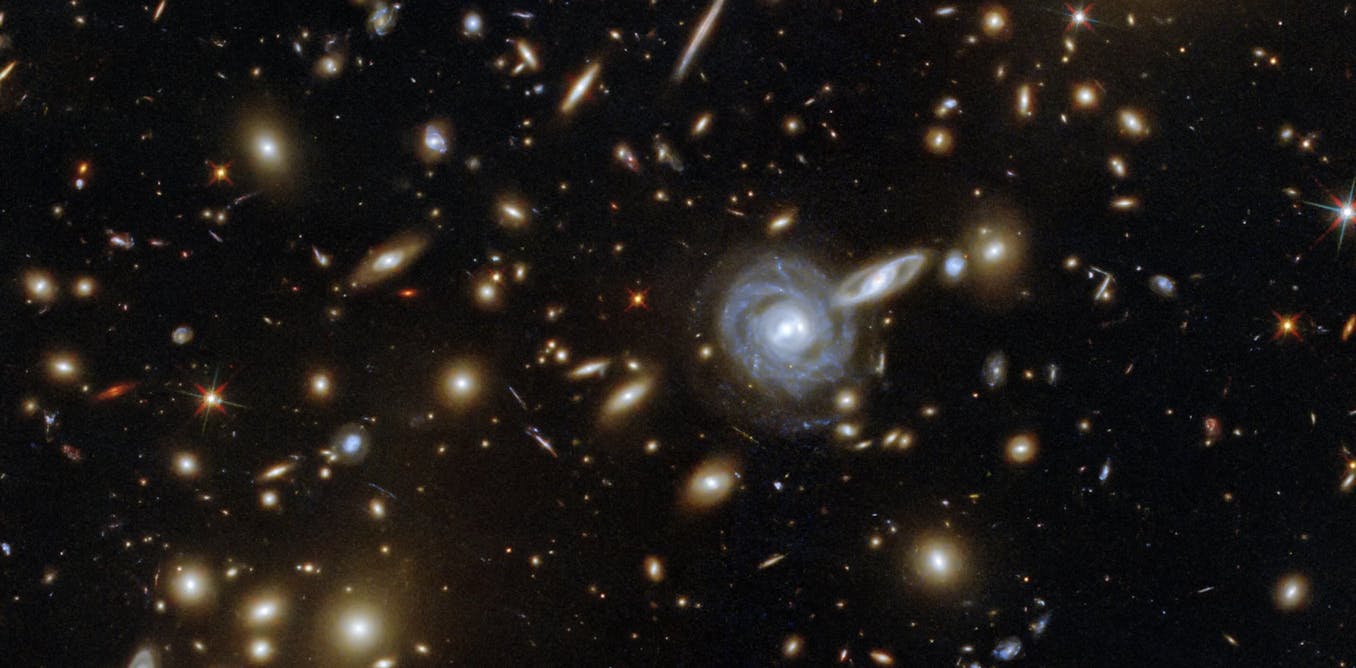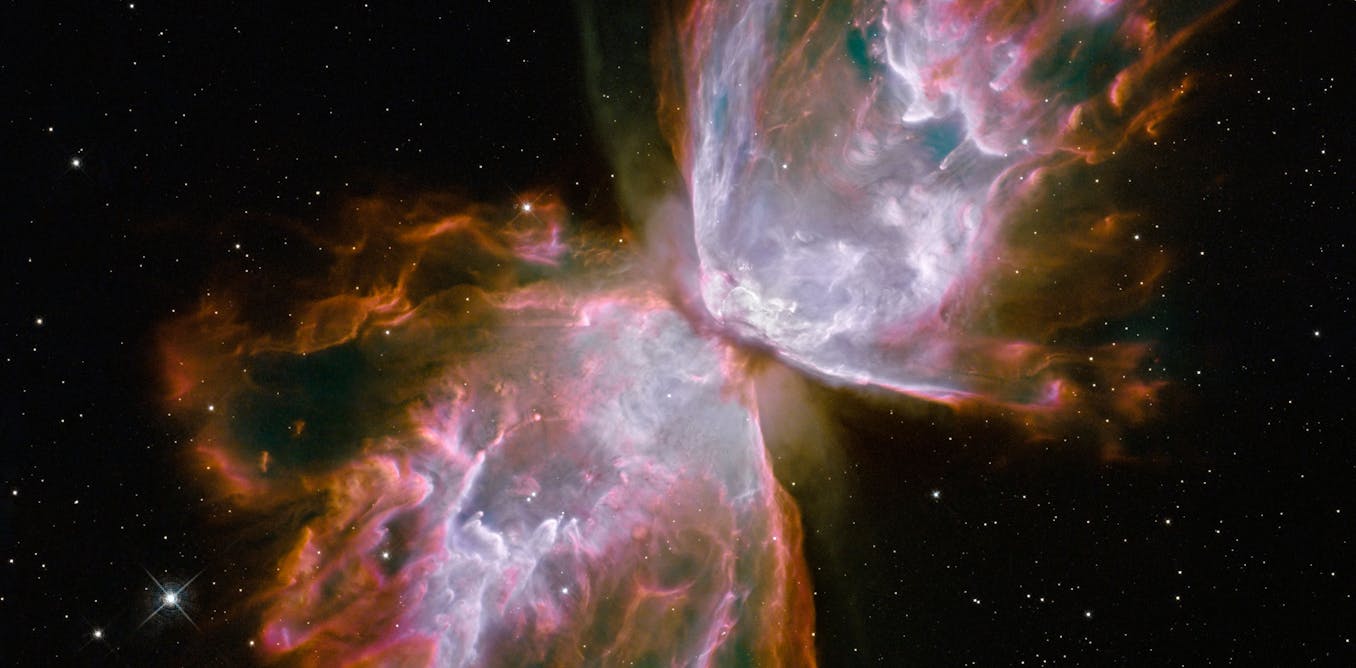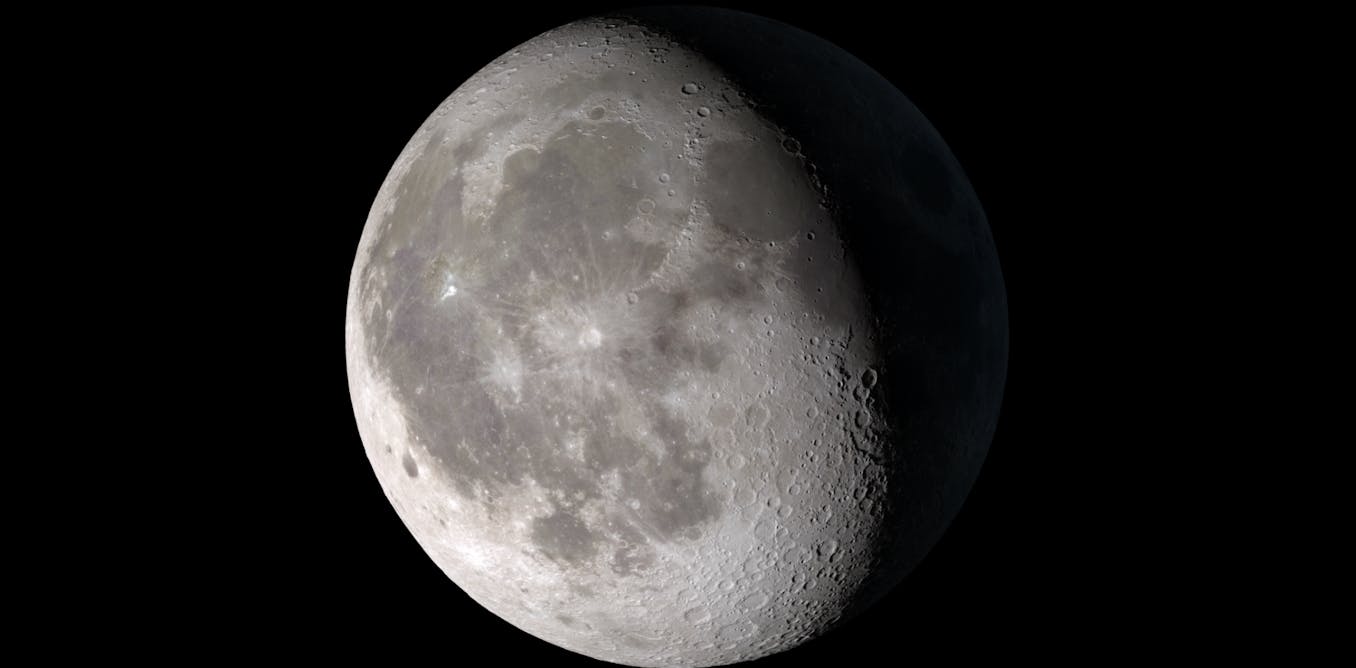A new generation of telescopes will probe the ‘unknown unknowns’ that could transform our knowledge of the universe
Cosmology could be transformed by a new wave of telescopes – both on the ground and in space.
Richard Massey, Professor of extragalactic astrophysics (dark matter and cosmology), Durham University •
conversation
Oct. 17, 2024 • ~12 min
Oct. 17, 2024 • ~12 min
Comet Tsuchinshan-ATLAS is a Halloween visitor from the spooky Oort Cloud − the invisible bubble that’s home to countless space objects
Comet Tsuchinshan-ATLAS is one of 2 comets from the Oort Cloud passing by Earth in October 2024.
James Wray, Professor of Earth and Atmospheric Sciences, Georgia Institute of Technology •
conversation
Oct. 11, 2024 • ~9 min
Oct. 11, 2024 • ~9 min
Astronomers can’t agree on how fast the universe is expanding. New approaches are aiming to break the impasse
The Hubble tension has been described as a “crisis” for cosmology. Can it be resolved?
Alex Hall, Royal Society University Research Fellow, School of Physics and Astronomy, The University of Edinburgh •
conversation
Sept. 19, 2024 • ~12 min
Sept. 19, 2024 • ~12 min
The ancient Egyptian goddess of the sky and how I used modern astronomy to explore her link with the Milky Way
A new study shines light on the link between the Milky Way and the ancient Egyptian sky goddess Nut
Or Graur, Associate Professor of Astrophysics, University of Portsmouth
• conversation
May 3, 2024 • ~6 min
May 3, 2024 • ~6 min
Exploding stars are rare but emit torrents of radiation − if one happened close enough to Earth, it could threaten life on the planet
Some ancient texts record what were likely dying stars, faintly visible from Earth. If close enough, these events can disturb telescopes and even damage the ozone layer.
Chris Impey, University Distinguished Professor of Astronomy, University of Arizona •
conversation
March 29, 2024 • ~9 min
March 29, 2024 • ~9 min
Privatised Moon landings: the two US missions set to open a new era of commercial lunar exploration
The Peregrine and Nova-C landers are due to carry out valuable science at two diverse lunar locations.
Ian Whittaker, Senior Lecturer in Physics, Nottingham Trent University •
conversation
Jan. 2, 2024 • ~8 min
Jan. 2, 2024 • ~8 min
/
4




